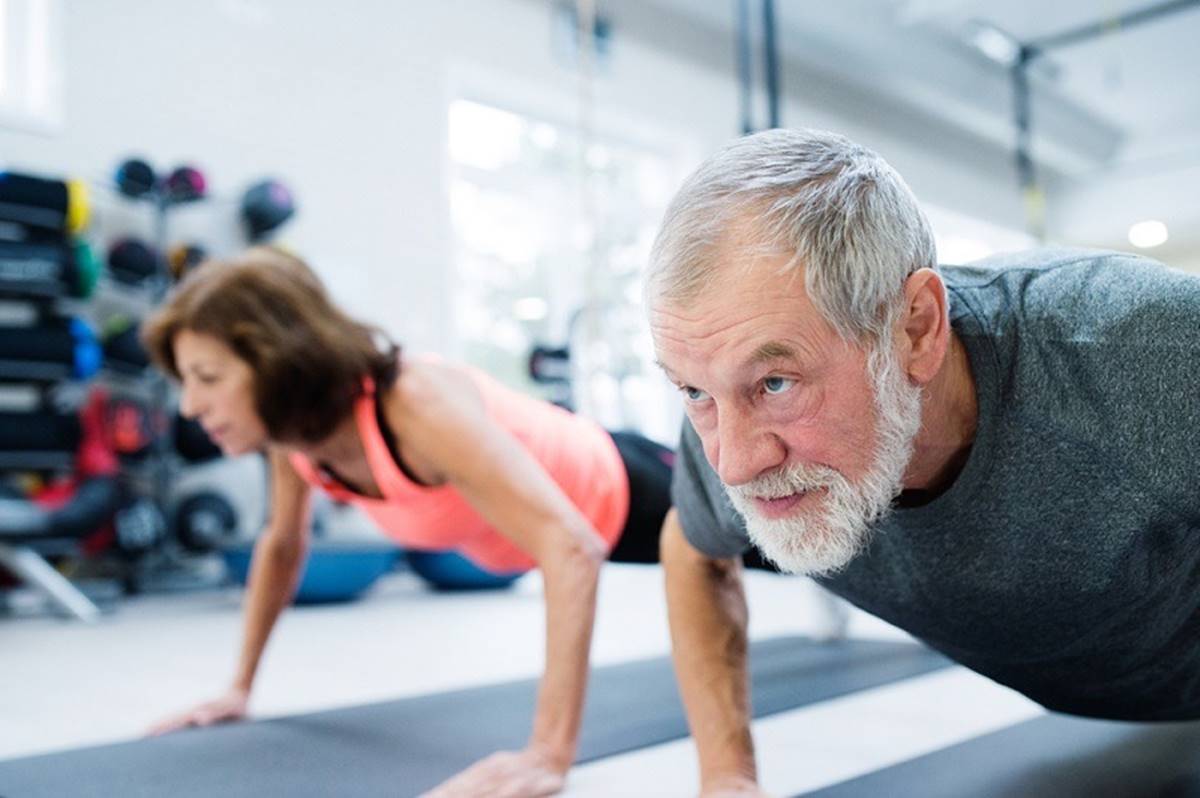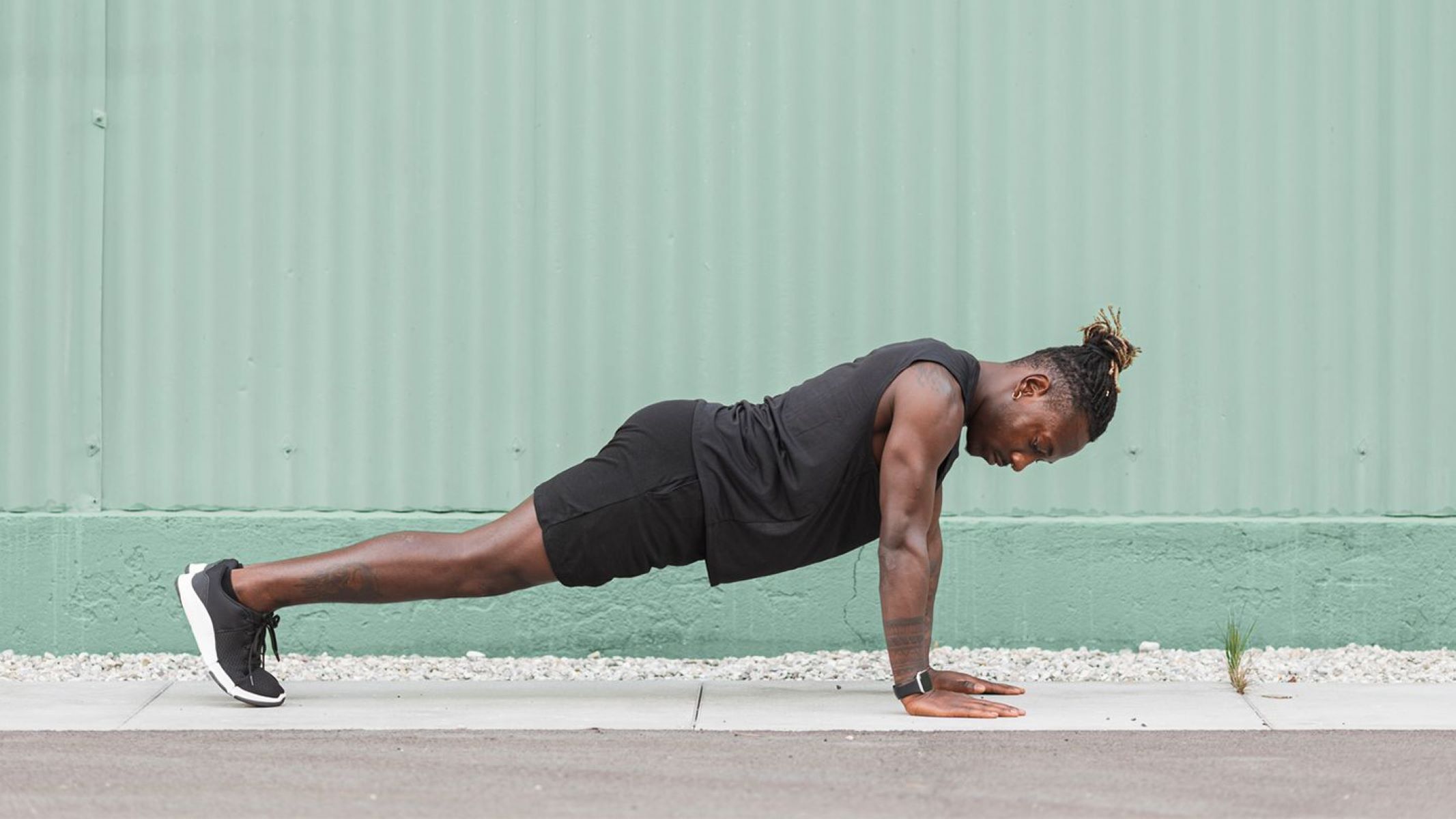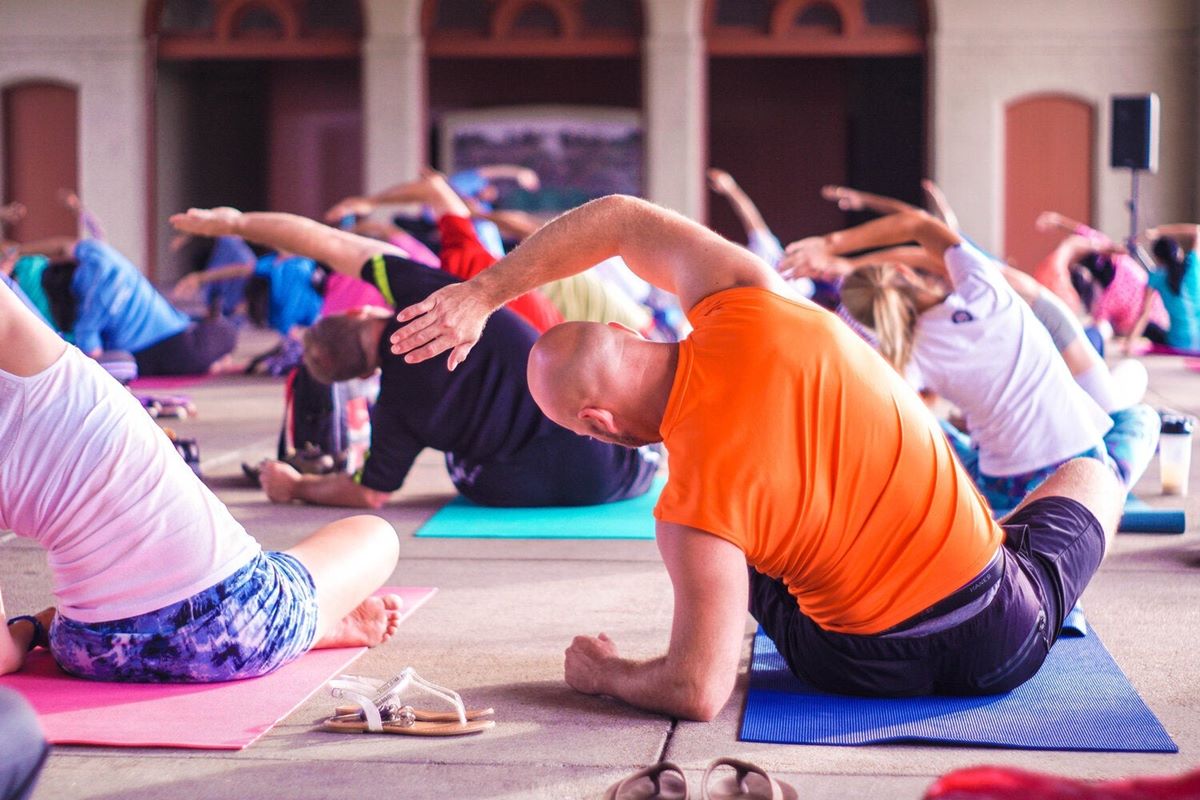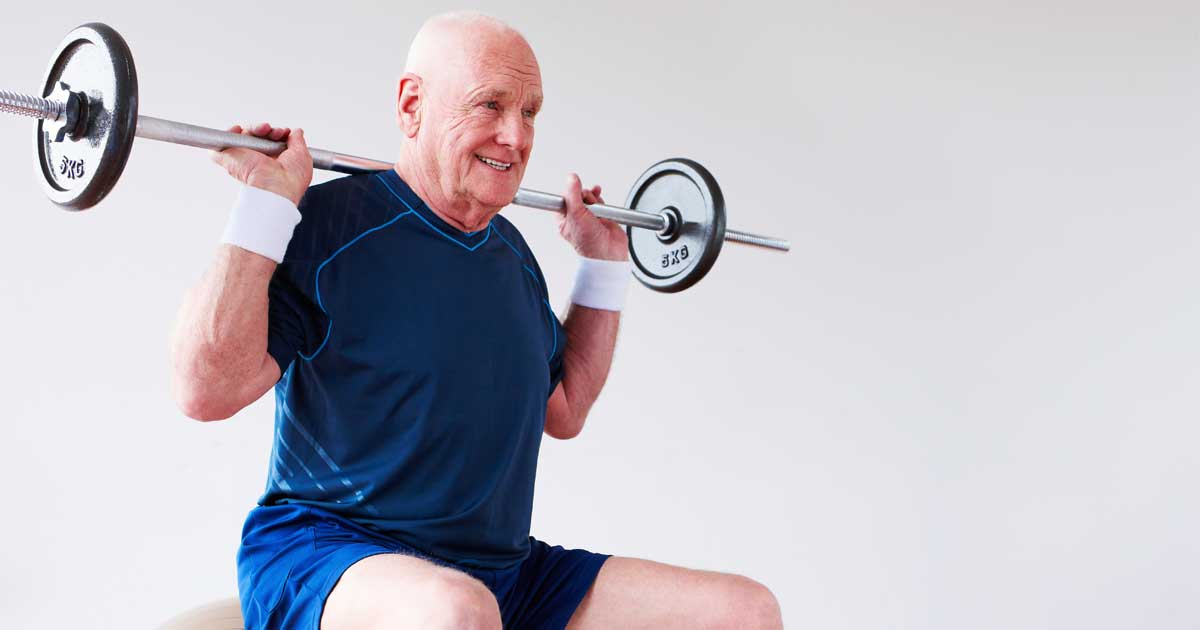

Featured
How Can Exercise Help You Live Longer?
Published: September 24, 2023
Discover how exercise can help you live longer and improve your overall health. Read our featured article for tips and insights on incorporating fitness into your lifestyle.
Introduction
Exercise is not only essential for maintaining a healthy weight and improving physical fitness, but it also plays a crucial role in promoting longevity and overall well-being. For many years, scientists and health experts have studied the relationship between exercise and longevity, and the findings consistently support the notion that regular physical activity can significantly extend our lifespan.
In today’s fast-paced and sedentary world, it’s more important than ever to prioritize exercise and make it a part of our daily routine. Whether it’s a brisk walk, a gym workout, or a fun sport, incorporating regular exercise into our lives can have a profound impact on our health and longevity.
In this article, we will explore the many ways in which exercise can help us live longer and lead healthier lives. We will delve into the various benefits of regular exercise, including improved cardiovascular health, weight management, muscle strength, and bone health. Moreover, we will explore the profound effects of exercise on our mood, mental health, and overall well-being.
By understanding the connection between exercise and longevity, we can inspire ourselves to make positive changes and commit to an active and healthy lifestyle. So, let’s dive in and discover the incredible benefits that exercise has in store for us!
Benefits of Regular Exercise
Regular exercise offers a myriad of benefits that extend far beyond just physical fitness. Let’s explore some of the key advantages:
- Improved cardiovascular health: Engaging in aerobic exercises, such as running, swimming, or cycling, strengthens the heart and improves blood circulation. This reduces the risk of heart disease, lowers blood pressure, and enhances overall cardiovascular health.
- Weight management: Exercise helps to burn calories and build muscle, making it an effective tool for weight management. Whether it’s shedding excess pounds or maintaining a healthy weight, regular exercise can be instrumental in achieving and sustaining your desired body weight.
- Muscle strength and bone health: Strength training exercises, such as weightlifting or resistance training, help to build and maintain muscle mass. This not only improves strength and endurance but also plays a vital role in maintaining bone density and preventing osteoporosis as we age.
- Mood and mental health: Exercise releases endorphins, which are often referred to as “feel-good” hormones. These chemicals boost mood, reduce stress, and alleviate symptoms of anxiety and depression. Engaging in regular physical activity can have a profound positive impact on our mental well-being.
- Overall well-being: Regular exercise improves overall physical and mental well-being. It enhances energy levels, promotes better sleep, boosts self-confidence, and increases productivity. It also reduces the risk of chronic diseases, such as diabetes and certain types of cancer, helping us lead a healthier, happier life.
These are just a few of the numerous benefits that regular exercise can provide. By incorporating physical activity into our daily routine, we can reap the rewards and significantly improve our quality of life.
Exercise and Longevity
The link between exercise and longevity has been extensively researched, and the evidence consistently shows that regular physical activity is associated with a longer, healthier life. Let’s take a closer look at how exercise can contribute to increased longevity:
1. Reduced risk of chronic diseases: Engaging in regular exercise can significantly reduce the risk of developing chronic diseases such as heart disease, type 2 diabetes, and certain types of cancer. These diseases are leading causes of premature death, and by incorporating exercise into our daily lives, we can lower our risk and increase our chances of living a longer, disease-free life.
2. Enhanced immune function: Exercise has been shown to strengthen the immune system, allowing our bodies to better defend against infections and diseases. Regular physical activity can help reduce the frequency and severity of illnesses, thereby contributing to a longer and healthier life.
3. Improved cognitive function: Studies have found a positive association between exercise and cognitive function. Regular physical activity not only improves memory and cognitive abilities but also lowers the risk of developing dementia and age-related cognitive decline. By keeping our brains active and healthy through exercise, we can increase our chances of maintaining mental sharpness as we age.
4. Slowed aging process: Regular exercise has been shown to slow down the aging process at a cellular level. It helps to preserve the length of telomeres, which are protective caps on the ends of our chromosomes that naturally shorten with age. By extending the lifespan of our cells, exercise can potentially extend our overall lifespan as well.
5. Prevention of muscle and bone loss: Age-related muscle and bone loss are common, leading to frailty and increased risk of falls and fractures. However, regular exercise, particularly strength training, can help combat these effects by preserving muscle mass and improving bone density. This can significantly enhance physical function and reduce the risk of age-related injuries, contributing to a longer, healthier life.
6. Increased longevity in older adults: Numerous studies have shown that engaging in regular physical activity can significantly increase life expectancy, especially in older adults. It is never too late to start exercising and reap the benefits. Even moderate levels of activity can improve health outcomes and extend life expectancy.
Incorporating regular exercise into our lives is a powerful tool for increasing longevity and improving overall health and well-being. Regardless of age or fitness level, starting an exercise routine can have a profound impact on our longevity and quality of life.
Cardiovascular Health
Regular exercise plays an integral role in maintaining cardiovascular health. It strengthens the heart, improves blood circulation, and reduces the risk of heart disease. Let’s explore how exercise benefits our cardiovascular system:
1. Improved heart function: Engaging in aerobic activities such as running, swimming, or cycling increases the heart rate, which strengthens the heart muscle. As the heart becomes stronger, it can pump blood more efficiently, delivering oxygen and nutrients to the body’s organs and tissues.
2. Lowered blood pressure: Regular exercise can help lower elevated blood pressure levels. Physical activity improves blood vessel elasticity, reduces arterial stiffness, and promotes the dilation of blood vessels, resulting in a decrease in blood pressure and a reduced risk of hypertension.
3. Reduced risk of heart disease: Cardiovascular diseases, such as coronary artery disease, are a leading cause of death worldwide. Regular exercise can significantly reduce the risk of developing heart disease by lowering blood cholesterol levels, maintaining a healthy weight, and improving overall heart health.
4. Increased production of HDL cholesterol: Exercise raises the levels of high-density lipoprotein (HDL) cholesterol, often referred to as “good” cholesterol. HDL cholesterol helps remove low-density lipoprotein (LDL) cholesterol, or “bad” cholesterol, from the bloodstream, reducing the risk of plaque buildup in the arteries.
5. Reduced inflammation: Chronic inflammation is a key driver of cardiovascular disease. Regular exercise has been shown to reduce inflammation markers in the body, protecting against the development of atherosclerosis and other cardiovascular conditions.
6. Enhanced vascular health: Exercise stimulates the growth of new blood vessels, improving vascular health and increasing blood flow to different parts of the body. This enhanced blood circulation ensures that essential nutrients and oxygen are delivered to all cells, promoting overall cardiovascular health.
By incorporating regular aerobic exercise into our routine, we can significantly improve our cardiovascular health. Aim for at least 150 minutes of moderate-intensity aerobic exercise or 75 minutes of vigorous-intensity aerobic activity each week, along with muscle-strengthening activities on two or more days a week. Consult with a healthcare professional before starting a new exercise program, especially if you have existing cardiovascular conditions or concerns.
Weight Management
Regular exercise is instrumental in managing body weight and achieving a healthy BMI (Body Mass Index). Let’s explore how exercise contributes to effective weight management:
1. Calorie burning: Physical activity helps to burn calories, promoting weight loss or weight maintenance. Whether it’s engaging in cardiovascular exercises like jogging or cycling or participating in resistance training, each type of exercise contributes to burning calories and increasing energy expenditure.
2. Increased metabolism: Exercise boosts our metabolism, which refers to the rate at which our bodies burn calories. Even after a workout, our metabolism remains elevated, leading to continued calorie burning throughout the day.
3. Preserves muscle mass: Regular exercise, including strength training, helps to preserve and build muscle mass. Muscle has a higher metabolic rate compared to fat, so the more muscle we have, the more calories we burn, even at rest.
4. Appetite regulation: Exercise can help regulate our appetite by balancing hunger hormones. Physical activity increases the release of hormones, such as serotonin and dopamine, which promote feelings of satiety and reduce cravings for unhealthy foods.
5. Body composition improvement: Exercise not only helps with weight loss but also improves body composition. By building muscle and reducing body fat, exercise can lead to a more toned and lean physique.
6. Long-term weight maintenance: Sustaining weight loss can be challenging, but regular exercise can significantly increase the chances of maintaining weight loss over the long term. It helps to prevent weight regain and provides the necessary support for overall weight management.
It’s important to note that exercise alone may not be sufficient for significant weight loss. Pairing regular physical activity with a balanced and healthy diet is crucial for achieving optimal weight management results. Consult with a healthcare professional or a registered dietitian for personalized guidance and recommendations.
Muscle Strength and Bone Health
Regular exercise, particularly strength training and weight-bearing activities, plays a vital role in developing and maintaining muscle strength and bone health. Let’s explore how exercise benefits our muscles and bones:
1. Muscle strength and endurance: Engaging in strength training exercises, such as weightlifting or resistance training, helps to build and strengthen muscles. Regular strength training sessions promote muscle growth, enhance muscle strength and endurance, and improve overall functional capacity.
2. Prevention of muscle loss: As we age, we naturally experience a decline in muscle mass and strength. However, incorporating regular strength training into our routine can help combat muscle loss and preserve muscle mass. This is particularly important for maintaining mobility, balance, and preventing falls as we get older.
3. Increased bone density: Weight-bearing exercises, such as walking, running, and dancing, stimulate the bones, leading to improved bone mineral density. This is crucial for reducing the risk of osteoporosis and fractures, especially in postmenopausal women who are more susceptible to bone loss.
4. Prevention of age-related bone loss: Regular exercise, especially weight-bearing activities, helps to slow down age-related bone loss. By subjecting the bones to mild stress through exercise, we stimulate the production of new bone tissue, improving bone density and strength.
5. Improved joint health: Exercise helps to maintain joint flexibility and mobility, reducing the risk of joint pain, stiffness, and degenerative conditions, such as osteoarthritis. Engaging in low-impact exercises, like swimming or cycling, can be especially beneficial for joint health.
6. Enhanced balance and coordination: Regular exercise, including activities like yoga or tai chi, improves balance, coordination, and proprioception (body awareness). This reduces the risk of falls and injuries and improves overall physical function and quality of life.
It’s important to vary your exercise routine to target different muscle groups and incorporate both aerobic and strength training exercises. Aim for at least two to three strength training sessions per week and include weight-bearing activities for bone health. Consult with a fitness professional or healthcare provider to design an exercise program that suits your individual needs and goals.
Mood and Mental Health
Exercise has a profound impact on our mood and mental well-being. Engaging in regular physical activity has been shown to improve mood, reduce stress, and alleviate symptoms of anxiety and depression. Let’s explore how exercise benefits our mood and mental health:
1. Release of feel-good hormones: Exercise stimulates the release of endorphins, neurotransmitters in the brain that are often referred to as “feel-good” hormones. These chemicals are responsible for elevating mood and promoting feelings of happiness and well-being.
2. Stress reduction: Physical activity helps to reduce stress by decreasing stress hormones, such as cortisol, and promoting relaxation. Regular exercise can serve as a healthy outlet for stress and tension, providing a sense of calm and improving overall mental resilience.
3. Anxiety and depression management: Exercise has been shown to be an effective strategy for managing symptoms of anxiety and depression. It can increase self-esteem, boost self-confidence, and provide a distraction from negative thoughts and emotions.
4. Improved cognitive function: Regular exercise has a positive impact on cognitive function, including memory, attention, and concentration. Physical activity increases blood flow to the brain, promotes the growth of new neurons, and enhances overall cognitive abilities.
5. Sleep improvement: Exercise can improve sleep quality and duration, leading to better overall mental well-being. Physical activity helps regulate sleep patterns, reduce insomnia, and promote a deeper and more restful sleep.
6. Social engagement: Participating in group exercise classes or team sports provides an opportunity for social interaction and connection. This can reduce feelings of loneliness and isolation, contributing to improved mental health and a sense of belonging.
Incorporating regular exercise into our routine can have profound effects on our mood and mental well-being. Find activities that you enjoy and make them a part of your daily or weekly schedule. Aim for at least 30 minutes of moderate-intensity exercise most days of the week, but even shorter bursts of activity can have positive mental health benefits.
Overall Well-being
Regular exercise contributes to our overall well-being in numerous ways, encompassing physical, mental, and emotional aspects. Let’s explore how exercise improves our overall well-being:
1. Increased energy levels: Regular physical activity boosts energy levels and combats fatigue. Exercise stimulates the production of endorphins, providing a natural energy boost that lasts throughout the day.
2. Enhanced productivity: Exercise has been shown to improve focus, concentration, and productivity. Engaging in physical activity before or during work can increase mental clarity and enhance cognitive performance.
3. Improved self-confidence: Regular exercise can boost self-esteem and improve body image. Achieving fitness goals, seeing physical progress, and feeling stronger and more capable contribute to higher self-confidence levels.
4. Strengthened immune system: Exercise strengthens the immune system, reducing the risk of illnesses and improving overall health. Regular physical activity can help ward off common infections and enhance the body’s ability to fight off diseases.
5. Enhanced social connections: Exercise can provide opportunities for social interaction and foster meaningful connections. Joining group exercise classes, sports teams, or workout communities allows for the development of supportive relationships and a sense of belonging.
6. Improved longevity and quality of life: Regular exercise, as discussed throughout this article, is linked to increased longevity. By improving cardiovascular health, maintaining a healthy weight, and promoting overall well-being, exercise helps us live a longer, healthier, and more fulfilling life.
When it comes to overall well-being, it’s important to find activities that you enjoy and that align with your interests and preferences. Whether it’s dancing, hiking, swimming, or practicing yoga, incorporating exercise into your daily routine can have a transformative effect on your overall well-being.
Recommendations for Exercise
To reap the full benefits of exercise and maximize your health and well-being, it’s important to follow some key recommendations:
1. Choose activities you enjoy: Find physical activities that you enjoy and that fit into your lifestyle. This will increase the likelihood of sticking to your exercise routine and making it a sustainable habit.
2. Set realistic goals: Set achievable goals that are specific, measurable, attainable, relevant, and time-bound (SMART). Having clear goals can help you stay motivated and track your progress.
3. Start slowly and progress gradually: If you’re new to exercise or returning after a long break, begin with low-impact activities and gradually increase intensity and duration. This will minimize the risk of injury and allow your body to adapt over time.
4. Include a variety of exercises: Incorporate a mix of cardiovascular exercises, strength training, and flexibility exercises into your routine. This ensures that you’re targeting different muscle groups, improving overall fitness, and preventing boredom.
5. Listen to your body: Pay attention to your body’s signals and adjust your exercise intensity or duration accordingly. Rest and recover when needed to prevent overtraining and avoid pushing yourself too hard.
6. Stay consistent: Make exercise a regular part of your daily or weekly schedule. Consistency is key to achieving and maintaining the benefits of exercise in the long term.
7. Stay hydrated: Drink plenty of water before, during, and after exercise to stay properly hydrated. This is important for performance, recovery, and overall health.
8. Prioritize sleep: Aim for seven to nine hours of quality sleep each night. Sleep is crucial for muscle recovery, hormone regulation, and overall well-being.
9. Seek professional guidance if needed: If you have any underlying health conditions or concerns, consult with a healthcare professional or a certified fitness trainer to design an exercise program that suits your individual needs.
Remember, the most important thing is to find joy in being active and taking care of your body. Listen to your body, stay consistent, and enjoy the numerous benefits that regular exercise can bring to your life.
Conclusion
Regular exercise is not just about physical fitness; it is a powerful tool for improving longevity and enhancing overall well-being. The benefits of exercise extend far beyond just the physical aspects, impacting our mood, mental health, and quality of life. By prioritizing exercise and incorporating it into our daily routine, we can experience a wide range of positive effects.
Exercise improves cardiovascular health, helps manage weight, strengthens muscles, and promotes bone health. It releases endorphins, reduces stress, and enhances our mood and mental well-being. Regular physical activity contributes to our overall well-being by increasing energy levels, improving productivity, and boosting self-confidence. It also strengthens the immune system and enhances social connections.
Incorporating exercise into our lives may seem daunting at first, but starting with small steps and gradually increasing our activity level can make a significant difference. Engaging in activities we enjoy, setting realistic goals, and listening to our bodies can help us sustain a consistent exercise routine. It is important to find the right balance between challenging ourselves and taking rest days to prevent overexertion and injury.
Remember, exercise is not a one-size-fits-all approach. Consult with a healthcare professional or fitness expert to tailor an exercise plan to your individual needs and goals. Varying your workouts and incorporating a mix of cardiovascular, strength training, and flexibility exercises can keep you engaged and yield maximum benefits.
By making exercise a priority in our lives, we can experience increased longevity, enhanced physical and mental health, and an overall improved quality of life. So, let’s lace up our sneakers, find activities that bring us joy, and embark on a journey towards a healthier, happier, and more fulfilling life through the power of exercise.









